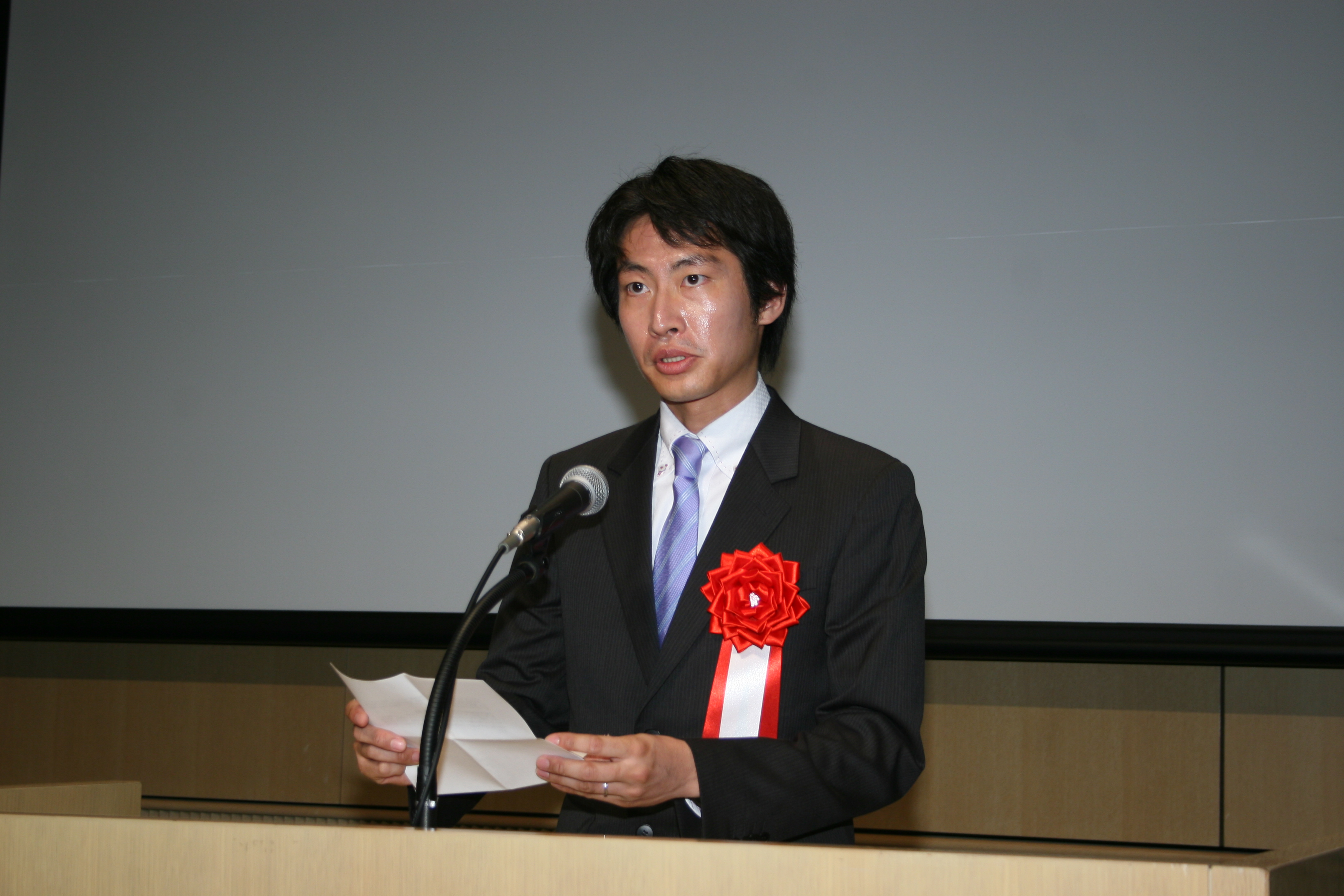 The Winner of the 12th Asia Pacific Research Prize (Iue Prize):
The Winner of the 12th Asia Pacific Research Prize (Iue Prize):
Dr. Arihiro Minoo
Title of Dissertation :
“The anthropological study of the impact of fair trade on coffee farmers: a case study of the coffee farmers’ villages in the Bolaven plateau of southern Laos”

- Dr. Arihiro Minoo
-
- Career -
Arihiro Minoo is an assistant professor in the Department of Sociocultural studies at Toyo University and joint research fellow at the National Museum of Ethnology. He specialized in Cultural Anthropology and Development Anthropology. After graduating from School of Letters, Arts and Sciences I, Waseda University with a B.A. in 2002, he acquired the M.A and Ph.D. degrees in 2005 and 2013, respectably, at Graduate School of Letters, Arts and Sciences, Waseda University. During enrollment at the Graduate School, he was a researcher at the Ministry of Information and Culture of Lao PDR (2008-2010) and the Institute of Sociology and Social Work, Meijigakuin University (2012-2013).
- Summary -
- Management History of the Chinese Eastern Railway:
Russia and Manchuria, 1896–1935 -
Fairtrade is one of the approaches to improve the living condition of disadvantaged producers especially in developing countries. The aim of this doctoral thesis is to examine the impact of Fairtrade on the coffee producers as well as the cooperatives in the Boloven plateau of Southern Laos, through the one year and a half anthropological field work. This thesis deals with two aspects of the impact: the producer’s livelihood and the social relationship among the producer’s community.
The first part of the thesis starts from illustrating the outline of Fairtrade movement and its system, and then moves onto the geographical background of the research area as well as the historical processes of the conversion from the shifting cultivation to the coffee planting (chapter 1-2). This part also examines the institution and the transaction system of three different cooperatives established since 2001 (chapter 3).
The second part focuses on the direct impact on the producers’ household income. After clarifying the livelihood strategies of the cooperative members’ households in the villages affiliated to the two different farmer’s cooperatives, how the members situate the transaction of coffee beans with the cooperative in these strategies is examined. This part also investigates that the rate of the income gained by the transaction through Fairtrade in the sum of the annual income (chapter 4-6).
The third part pays attention to the impact of Fairtrade on the social aspects. The power relation among people in the targeted village sets forth as a premise to investigate how the introduction of Fairtrade cooperative affects the social relationship of the villagers (chapter 7). This part moves on the examination of how Fairtrade cooperative influence on the local transaction system between the middlemen and the farmers (chapter 8).
Then, it is revealed the power relationships between the government and the cooperative, and between the cooperative executives through tracing the process of a NGO cooperative’ failure (chapter 9).In the final chapter, I summarize each previous chapter by using the anthropological concept of ‘community’ as a framework of analysis, and then I conclude that it is important to grasp what kinds of mechanism of social relations are constructed and to reveal how the introduction of Fairtrade system has effects on them.






